Every camper dreams of reconnecting with nature, but ignoring wildlife safety in North Carolina state parks can quickly turn that dream into danger. Understanding these crucial precautions not only protects you but also preserves the wilderness we cherish. Let’s explore how to keep your adventures safe and unforgettable.
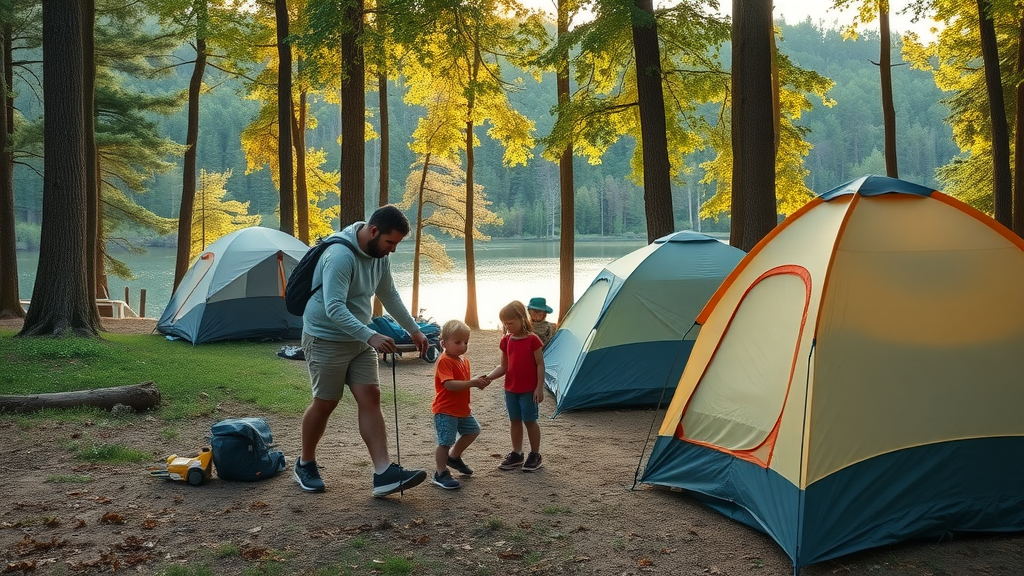
Why Is NC State Park Camping Wildlife Safety So Important?
NC state park camping wildlife safety is more than just a set of rules—it's a shared commitment to preserving North Carolina’s state parks and rich natural habitats for future generations. Every year, thousands flock to state parks seeking tranquility, adventure, and a healthy dose of the great outdoors. However, the influx of visitors carries risks: improper food storage, littering, and disregarding park guidelines can harm both people and wildlife.
Even a single careless act, such as leaving food out or ignoring bear warnings, can lead to dangerous wildlife encounters. Not only do these incidents threaten camper safety, but they also disrupt natural animal behaviors and can result in the relocation or euthanization of animals like the black bear. When state parks are respected, everyone enjoys safe, unforgettable visits—and the wilderness remains wild for future hikers and campers to experience.
"Ignoring wildlife safety risks not only endangers campers but also harms delicate North Carolina ecosystems. We all share the responsibility of protecting the wilderness together." – NC Parks Ranger
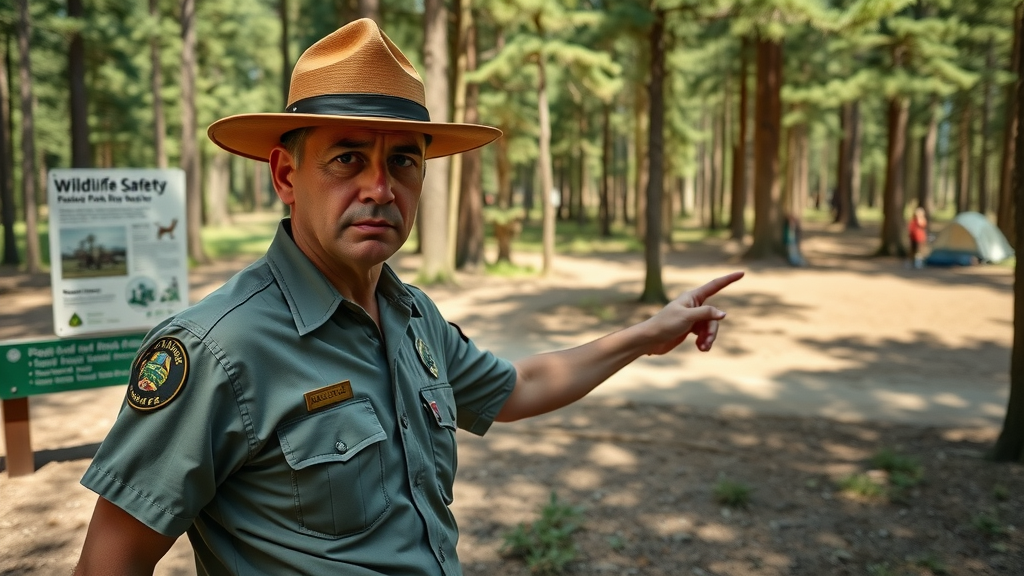
What Are the Top Wildlife-Related Hazards in North Carolina State Parks?
North Carolina state parks offer awe-inspiring experiences—from hiking the Blue Ridge Mountains to serene lakeside camping in protected state park areas. However, the state’s diverse terrain also means a variety of wildlife-related hazards. From black bears sniffing around picnic areas to venomous snakes camouflaged near trails, campers must stay alert and follow the state park’s official website guidance.
Recognizing wildlife risks helps you plan and enjoy a safer park visit. Here’s what you need to know about the most common hazards:
Bears and food storage mistakes: Failing to properly store food invites bears to your site, putting everyone at risk of bear encounters.
Venomous snakes near campsites: Copperheads and rattlesnakes can inhabit trails and underbrush, especially during warmer months.
Ticks, mosquitoes, and insect-borne diseases: Lyme disease and other illnesses are rising concerns for campers across North Carolina.
Poisonous plants and allergic reactions: Poison ivy, oak, and sumac can cause serious rashes when accidentally touched.
Unintentional wildlife feeding: Feeding wildlife, even “just a chip,” can disrupt natural foraging behavior and escalate risk.
Overview: Wildlife to Watch For When Camping in NC State Parks
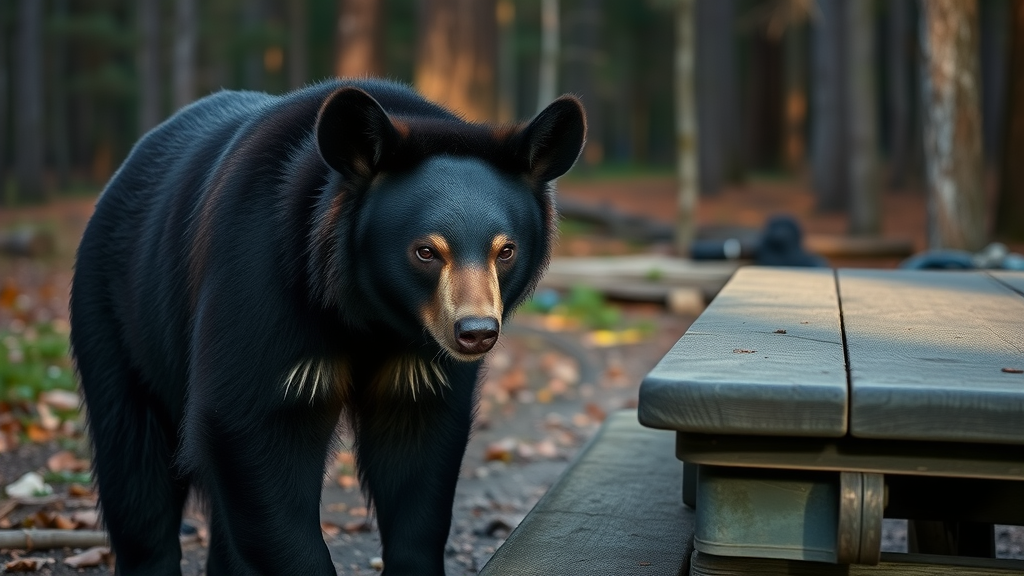
How Can Campers Prepare for Wildlife in NC State Parks?
Preparation is the foundation of good North Carolina state park camping wildlife safety. Before you pitch your tent, researching the local ecosystem and reviewing North Carolina state park regulations can make all the difference. Whether you’re camping in the Blue Ridge or another state government park, knowing which animals to expect lets you pack—and act—accordingly.
Below are five key steps to get wildlife-ready:
Research wildlife common to your park: Read official resources and talk to rangers for up-to-date animal sightings and precautions.
Pack bear-proof food containers: These are required in many areas to prevent attracting black bears and raccoons.
Wear insect-repellent clothing: Shirts, pants, and hats treated with permethrin ward off ticks and mosquitoes.
Carry a wildlife identification booklet: Recognizing animal tracks and plants boosts confidence and safety.
Set up campsites away from water sources: Water draws wildlife—position your site at least 200 feet away for extra caution.
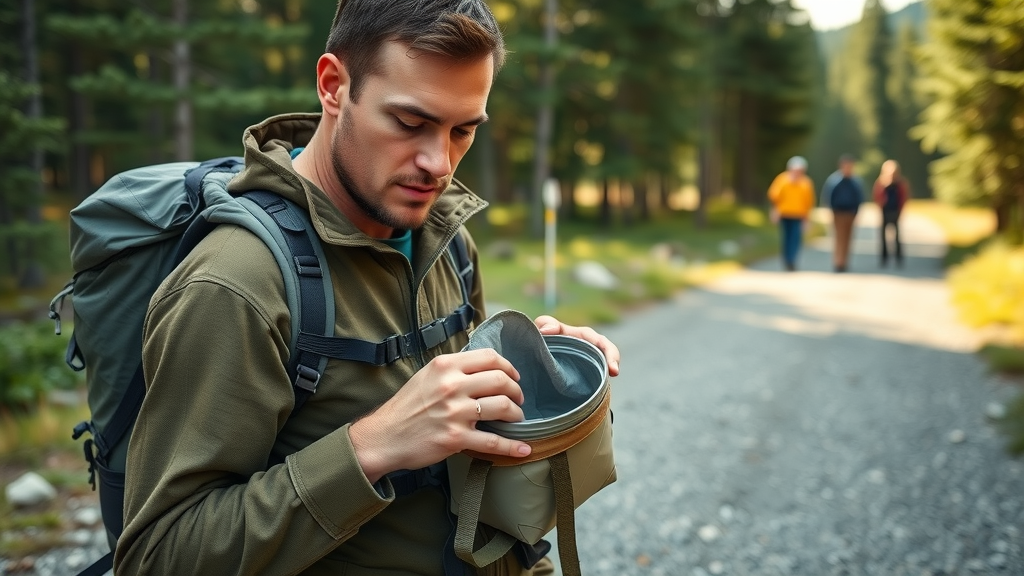
For campers who want to take their outdoor safety a step further, understanding the importance of safe and healthy meals can also enhance your experience. Discover how quick, nutritious recipes like a blackened shrimp bowl can be prepared efficiently at your campsite, supporting both your well-being and your wildlife safety efforts.
Mistake #1: Poor Food Storage in North Carolina's State Parks
Improper food storage is the number one cause of bear encounters and raccoon raids in North Carolina state parks, making it a critical aspect of state park wildlife safety. Leaving food or trash out—even for a short time—can quickly attract wildlife to your campsite. This exposes campers to risk and teaches animals to associate humans with easy meals, which can lead to dangerous repeat visits and potential removal of wildlife by park authorities.
The gold standard is to use a bear canister, which offers the best protection and is increasingly required in popular parks. Hanging food in trees, while an older technique, is only moderately effective—especially if done incorrectly. Never leave food or scented items unattended, and never store them in your tent. The goal is to eliminate smells and food sources entirely to maintain full privacy for your goods while keeping wildlife safely connected to their natural diet.
How does incorrect food storage threaten wildlife safety in NC state park camping?
Leaving food out or storing it improperly encourages animals like black bears, raccoons, and even squirrels to raid campsites. These habits not only risk property damage and personal injury but can create long-term issues where animals have to be relocated or even euthanized. Food-conditioned bears lose their wariness and may become aggressive—a risk cited often by North Carolina state park rangers. For campers, the stress of a midnight animal visit often marks an unwelcome end to an otherwise idyllic trip.
Using bear canisters or proper food lockers—available at many state parks—greatly reduces wildlife risk. Always follow posted guidelines and double-check that your food storage matches the park’s requirements.
Best vs. Worst Practices for Food Storage
Practice |
Outcome |
|---|---|
Bear canister use |
Lowers wildlife risk |
Hanging food in trees |
Moderate effectiveness |
Leaving food out |
Attracts wildlife |
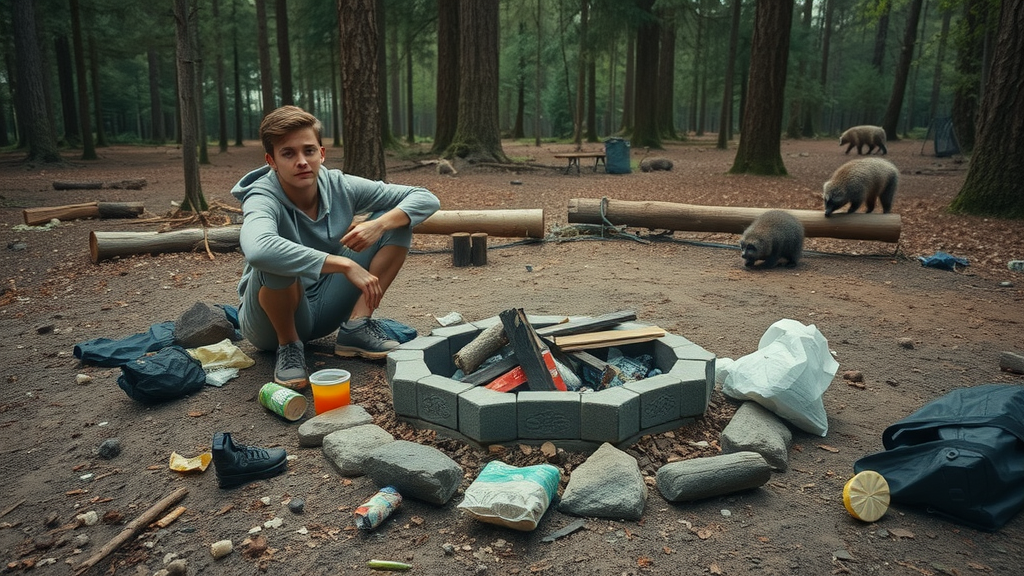
Mistake #2: Ignoring State Park Wildlife Warnings and Regulations
North Carolina’s state park system prominently posts wildlife safety regulations at entry points, trailheads, and campsites to ensure visitor and wildlife protection. These rules are not suggestions—they are essential measures designed to keep both visitors and animals safe. Ignoring posted signs or ranger advice can put your group in jeopardy and is a leading cause of incident reports each season.
Official signs often warn visitors about black bear activity, venomous snakes, or recent raccoon incursions. Rules such as keeping food in lock boxes, walking dogs on leashes, or disposing of trash properly are enforced for good reason. Adhering to regulations isn’t just about personal safety; it also demonstrates respect for North Carolina’s natural resources and other campers enjoying their park visit.
What specific north carolina regulations help ensure wildlife safety during camping trips?
Several North Carolina laws apply to state parks—not limited to wildlife safety:
Mandatory use of bear-proof containers in regions with frequent bear sightings
Leash laws for pets to prevent wildlife chasing or injuries
“Leave No Trace” mandates, requiring all trash to be packed out or thrown in designated bins
No feeding wildlife—deliberately or carelessly
Required permits for backcountry camping and fires
Before each trip, always check the park’s official website for updated guidance, closures, and safety bulletins.
"Following posted regulations in state parks is the easiest way to keep everyone safe—including the animals." – NC Parks Authority
Mistake #3: Failing to Keep a Clean Campsite in North Carolina State Parks
A messy campsite in North Carolina state parks is an open invitation for wildlife trouble and safety risks. In North Carolina, raccoons, chipmunks, and black bears can sniff out crumbs or wrappers from miles away. Consistently cleaning up after meals, storing garbage securely, and avoiding unnecessary scented products is essential for nc state park camping wildlife safety. “Full privacy” not only applies to your own family’s experience but should also extend to minimizing your presence to local wildlife.
Local park rangers advise campers to conduct a thorough post-meal cleanup. That means more than just bagging trash: wipe down tables, check under benches, and use eco-friendly soaps. The goal is to eliminate all scents that could attract wildlife—even if you’re only stepping away briefly. Practicing these habits ensures you remain safely connected to the joy of camping while respecting state parks’ delicate balance.
Dispose of trash in designated bins
Clean cooking areas after every meal
Store scented items in secure containers
Avoid bringing non-essential food or scented items
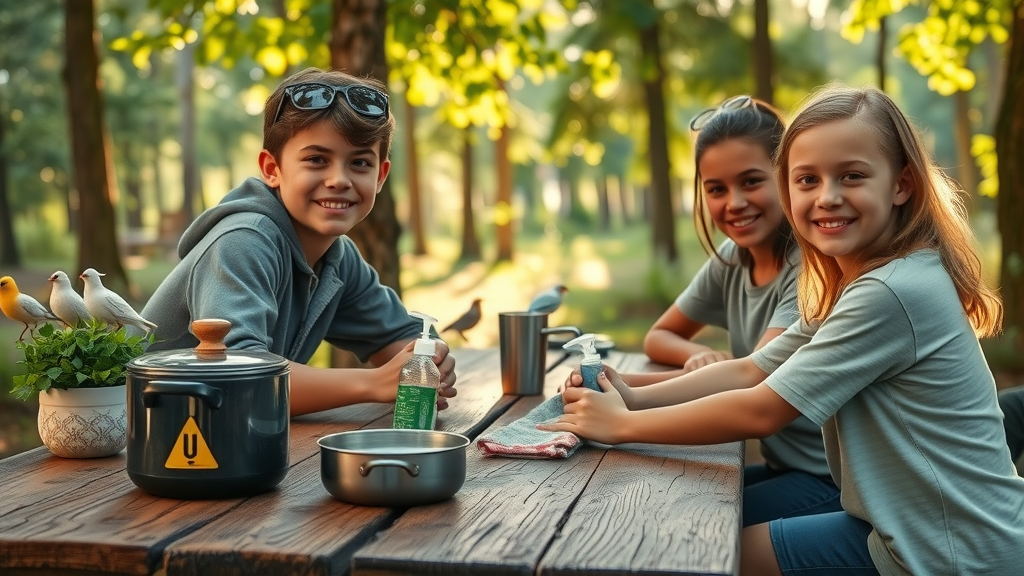
How to Maintain a Wildlife-Safe Campsite in NC State Parks
Mistake #4: Not Knowing How to Respond to Encounters with North Carolina Wildlife
Even with every precaution, you might still encounter North Carolina state park wildlife—especially black bears or venomous snakes. Knowing how to respond minimizes drama and maximizes safety during your park visit. Most animal encounters become dangerous because of panic or curiosity—both are best avoided.
Stay alert and remember: not all animals are threats. Most North Carolina state park wildlife prefers to avoid humans. If you do come face to face with a snake, raccoon, or bear, don’t run, shout, or approach.
What should you do if you encounter bears, snakes, or other wildlife in NC state parks?
Stay calm and maintain distance
Make noise to alert wildlife without provoking
Do not feed or approach animals
Back away slowly if wildlife seems agitated
Report dangerous encounters to park rangers immediately
Park rangers are trained for wildlife emergencies. Reporting sightings quickly helps ensure safer experiences for you and future campers. Carrying bear spray is recommended in some parks, especially in the highlands or during seasons of increased bear activity. Always check the official website for current guidance before your North Carolina park visit.
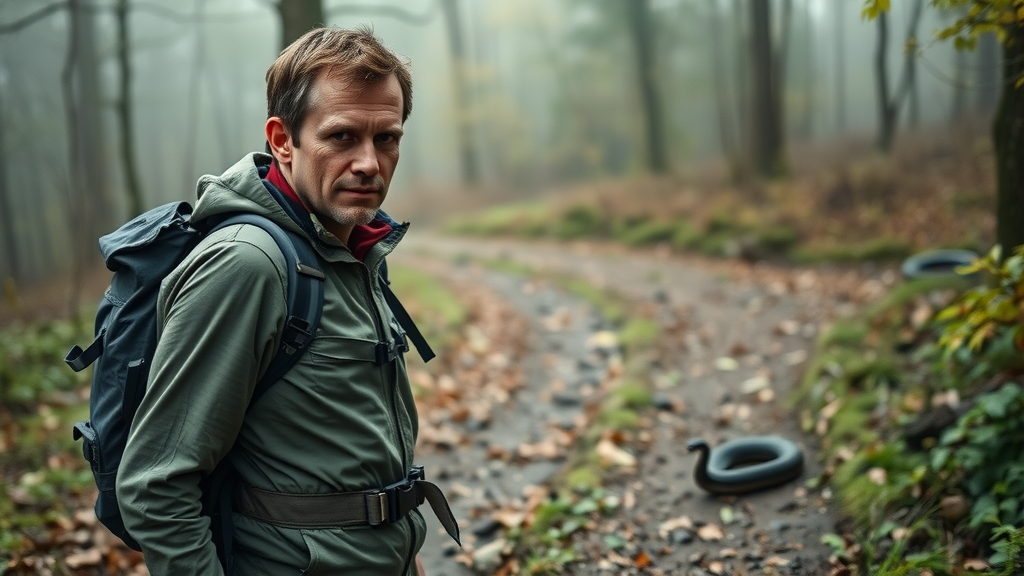
Mistake #5: Overlooking Personal Safety Precautions on NC State Park Trails
Safety on North Carolina state park trails is as vital as at the campsite. Common hiking mishaps include tick bites, twisted ankles, and slips near water crossings. Prepare in advance and follow these best practices to ensure your next North Carolina state park adventure doesn’t end in the ranger's cabin.
Go beyond basic wilderness advice—use marked trails, look for roots and rocks, and bring a partner or group whenever possible. Always let someone know your plans, especially in remote areas with limited cell service. Wear long pants and boots to help keep ticks at bay, and don’t forget insect repellent—mosquitoes are common in Carolina state parks.
Carry and use insect repellent
Wear long pants and boots to avoid ticks
Watch out for roots, rocks, and slippery patches
Use marked trails only
Travel in pairs or groups when possible
Can You Carry a Gun in a NC State Park?
Yes, you can carry a handgun in a North Carolina state park if you have a valid concealed carry permit recognized by the North Carolina state government. Open carry, however, is prohibited within most park boundaries and facilities. Always review state government websites and check with park rangers before your trip for the latest legal requirements and privacy policy updates. Violating gun laws within state parks is a serious offense and may result in heavy fines or loss of permit privileges. Remember, wildlife safety is rarely helped by firearms—instead, focus on proper food storage and remaining alert to avoid animal conflicts.
Do You Have to Wear a Life Jacket on a Kayak in NC State Parks?
Yes, North Carolina state law and state park regulations require all kayakers to have a U.S. Coast Guard-approved personal flotation device (PFD) on board. Children under 13 must wear life jackets at all times while on the water. These rules are strictly enforced for safety—accidents can happen quickly, even on calm lakes. Life jackets not only protect lives but also help park rangers respond swiftly during emergencies. Before going kayaking, view our full privacy policy and boating guidelines on the official website for the most accurate updates.
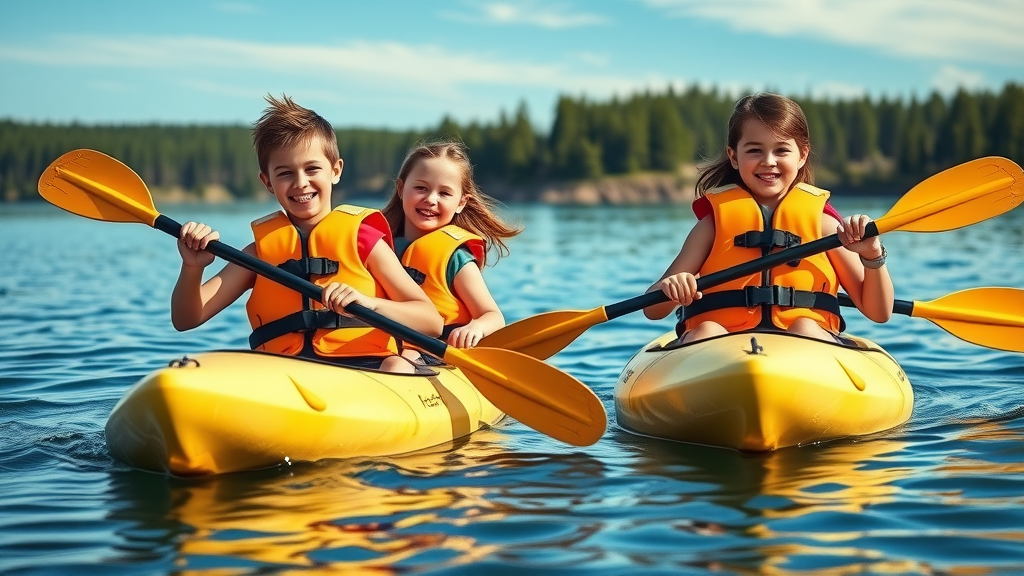
Can You Wild Camp in State Parks?
Wild camping, also known as “dispersed camping,” is not allowed in North Carolina state parks to protect natural resources and wildlife. All camping must take place in designated areas—and for a good reason. Designated campsites are managed to minimize environmental impact and increase visitor safety. The state government agencies actively enforce these regulations to protect both campers and the delicate ecosystems within park boundaries. For a truly off-the-grid experience, look to national forest land where different rules may apply, but always confirm with official sources.
What Are the Rules for Camping in NC?
North Carolina state parks have clear rules to keep wildlife—and campers—safe. Key regulations include mandatory permits for overnight stays, strict fire rules, and adherence to designated sites. Quiet hours are enforced, and alcohol is prohibited in public spaces. Following these rules allows you to fully enjoy your state park camping trip while honoring the responsibility every visitor shares: leaving North Carolina’s wilderness better than you found it.
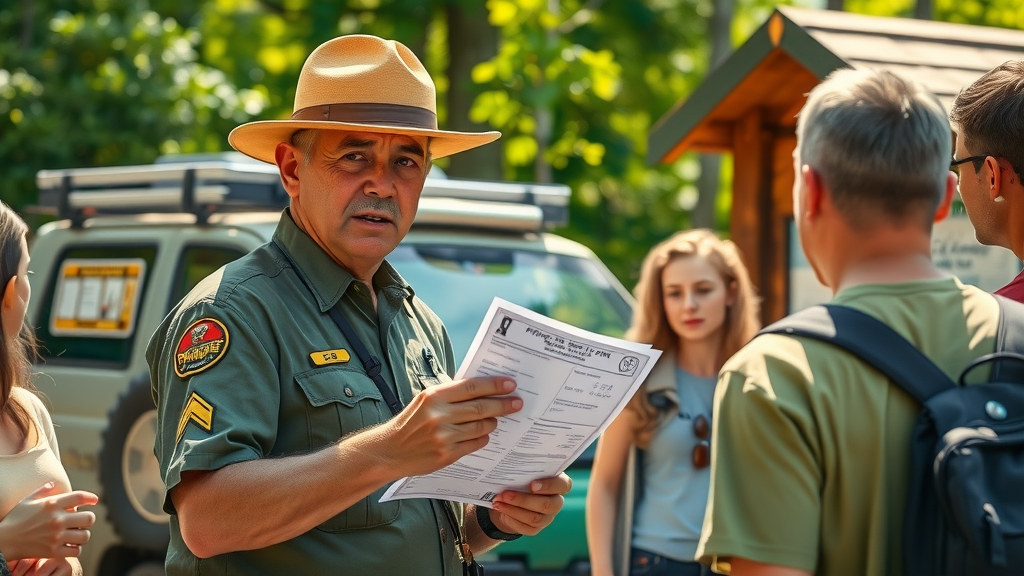
Frequently Asked Questions About NC State Park Camping Wildlife Safety
What animals are most common in NC State Parks?
Black bears, raccoons, deer, foxes, snakes (such as copperheads), and a variety of bird species. The official website offers region-specific wildlife updates.Is there a risk of rabies from raccoons or other wildlife?
Yes, though it’s rare, always avoid contact with sick-acting or aggressive animals. Report any unusual animal behavior immediately to park authorities.How can I tell a venomous snake from a non-venomous one?
Learn local species before your trip. Venomous snakes like copperheads have large, triangular heads and slit-like pupils, while non-venomous snakes usually have round pupils and less pronounced heads.What should I do if I’m bitten or stung?
Remain calm and seek medical help quickly. Report your location to park rangers and, if possible, take a photo of the animal for identification. Do not try to capture the animal.How do I report unsafe wildlife interactions?
Notify the nearest ranger station or call the number posted at trails and campgrounds. Quick reporting aids park safety and helps protect both future campers and animals.
Key Takeaways: Practicing Wildlife Safety in NC State Parks
Store all food and scented items properly
Obey posted regulations and local laws
Stay alert for wildlife on trails and at campsites
Preparation and education are your best defenses
NC state park camping wildlife safety is everyone’s responsibility
Expert Tips: Real-Life Safety Success Stories from North Carolina Parks
Conclusion: Make Your Next NC State Park Camping Trip Safe and Enjoyable
Explore, camp, and reconnect with North Carolina’s wild beauty—just remember that wildlife safety is your best tool for a memorable, trouble-free NC state park adventure!
If you’re passionate about creating safer outdoor experiences, you might also be interested in how safety and well-being are being prioritized in other North Carolina communities. For a broader look at how regulations and oversight can transform environments for the better, explore the movement toward stricter oversight of retirement communities across the state.
Discover how thoughtful policies and community engagement are making a difference, and consider how these lessons in safety and stewardship can inspire your next adventure—whether in the wild or closer to home.
Sources
Ensuring wildlife safety during camping trips in North Carolina state parks is crucial for both visitor protection and the preservation of natural habitats. The North Carolina Division of Parks and Recreation emphasizes the importance of adhering to the Leave No Trace principles, which include planning ahead, traveling on durable surfaces, disposing of waste properly, respecting wildlife, and being considerate of other visitors. (ncparks.gov)
Additionally, specific regulations are in place to safeguard both campers and wildlife. For instance, feeding or baiting wildlife is strictly prohibited, as it can harm animal health and alter their natural behaviors. Campers are also required to keep pets on leashes no longer than six feet and to clean up after them to prevent environmental contamination and disease transmission. (ncparks.gov)
By following these guidelines and regulations, campers can enjoy a safe and responsible experience in North Carolina’s state parks, ensuring that the natural beauty and wildlife remain undisturbed for future generations.
 Add Row
Add Row  Add
Add 




Write A Comment